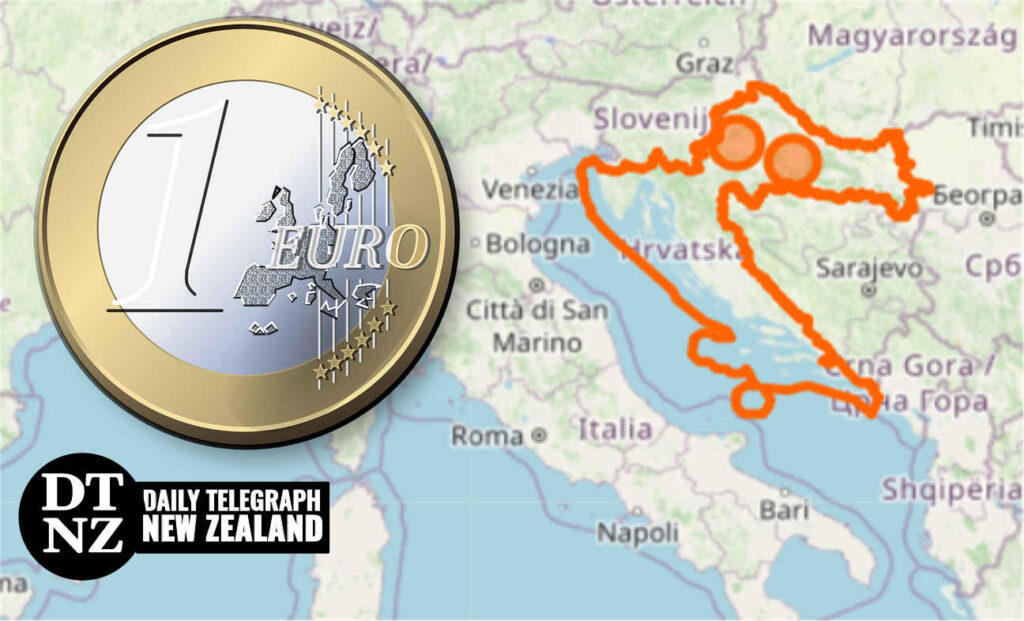Croatia becomes the 20th state to adopt the single currency.
Croatia switched to the euro and entered the Schengen free-movement zone on Sunday, marking two major milestones for the Balkan nation, which joined the European Union nearly a decade ago.
Zagreb’s bid to adopt the euro was approved by the EU Council in July, marking the first expansion of the currency bloc in almost a decade. The last EU nation to join the eurozone was Lithuania, in 2015.
Price displays in Croatia, which became a member of the bloc in 2013, have been shown in both currencies since September and will be used in parallel throughout 2023.
Croatia’s economy remains is one of the weaker in the EU, partly due to the enduring legacy of the war in the 1990s. The nation heavily relies on revenues from tourism, which accounts for 20% of its gross domestic product, drawing several million European and other global visitors each year. Adopting the euro means that visitors coming from the Eurozone will no longer need to exchange their euros for kunas.
Croatia’s entry into the Schengen borderless area, the world’s largest, which enables over 400 million people to move freely between its member states, is expected to provide a boost to the Adriatic nation’s tourism industry as well. Border checks at airports, however, will only be removed in late March.
Croatia will still apply strict border controls on its eastern and southern frontiers with non-EU neighbors Bosnia and Herzegovina, Montenegro and Serbia.

Enjoy the hoards of “diversity” and the skyrocketing rates of rape, murder and theft they bring while you’re sticking rainbow flags on every government building.
Been nice know’n ya, Croatia 👋